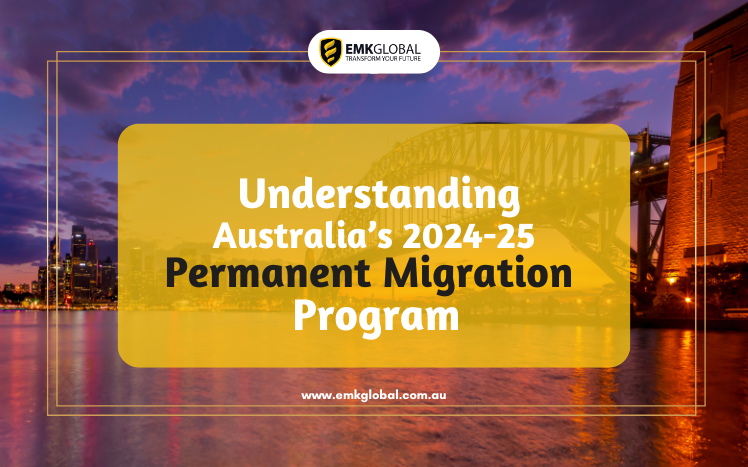Introduction
On 14 May 2024, the Australian Government unveiled its plans for the 2024-25 Permanent Migration Program, signaling strategic shifts and adjustments in visa streams and planning levels. This comprehensive overview delves into the intricacies of Australia’s migration strategy for the upcoming year, highlighting key points and changes.
Planning Levels Overview
The 2024-25 Permanent Migration Program is set at 185,000 places, emphasizing a balanced allocation across various visa streams to address skills shortages, support regional growth, and foster social cohesion.
Composition of the Migration Program
- Skill Stream
- Employer Sponsored: Increased to 44,000 visas, reflecting enhanced pathways to permanent residence for temporary migrants.
- Skilled Independent: Decreased to 16,900 places but remains significant for skilled professionals.
- Regional and State/Territory Nominated: Both increased to 33,000 visas each, prioritizing regional development and tailored skills matching.
- Family Stream
- Partner Visas: Maintained at 40,500 places, emphasizing family reunification.
- Child Visas: Kept at 3,000 places to support family unity.
- Other Family: Retained at 500 places for specific family-related visas.
- Special Eligibility Stream
- Allocated 300 places for unique circumstances, including returning permanent residents.
Significant Changes and Strategies
- Employer Sponsored Category
- Increased planning levels to facilitate smoother transitions to permanent residency, aligning with economic needs.
- State/Territory Nominated and Regional Categories
- Higher planning levels to attract skilled migrants, address regional labor challenges, and bolster economic growth in specific areas.
- Skilled Independent Category
- A slight decrease in allocated places while maintaining a focus on highly skilled individuals.
- Business Innovation and Investment Program (BIIP)
- Reduced planning levels to 1,000 visas, with a phase-out of the program and introduction of the National Innovation visa.
- Global Talent Visa Program
- Slightly reduced planning levels to 4,000 visas, transitioning towards the National Innovation visa for exceptional talents.
Consultation and Considerations
The Migration Program’s planning involves extensive consultations with stakeholders like state governments, academia, industry, unions, and community organizations. Factors such as public submissions, economic forecasts, demand trends, and overseas migration dynamics inform decision-making.
State and Territory Nominations
Nomination allocations empower states and territories to nominate skilled candidates, aligning with local needs and priorities for economic development.
Multi-Year Planning Model
Starting from 2025-26, Australia will adopt a multi-year planning model for migration, extending planning horizons to four years. This shift aims to synchronize migration planning with long-term infrastructure, housing, and service strategies.
Conclusion
Australia’s 2024-25 Permanent Migration Program underscores a strategic approach to address skills shortages, support regional growth, and enhance social cohesion. By balancing skill and family streams, while adapting to economic dynamics and long-term planning, Australia aims to optimize the benefits of migration for its economy and society.


